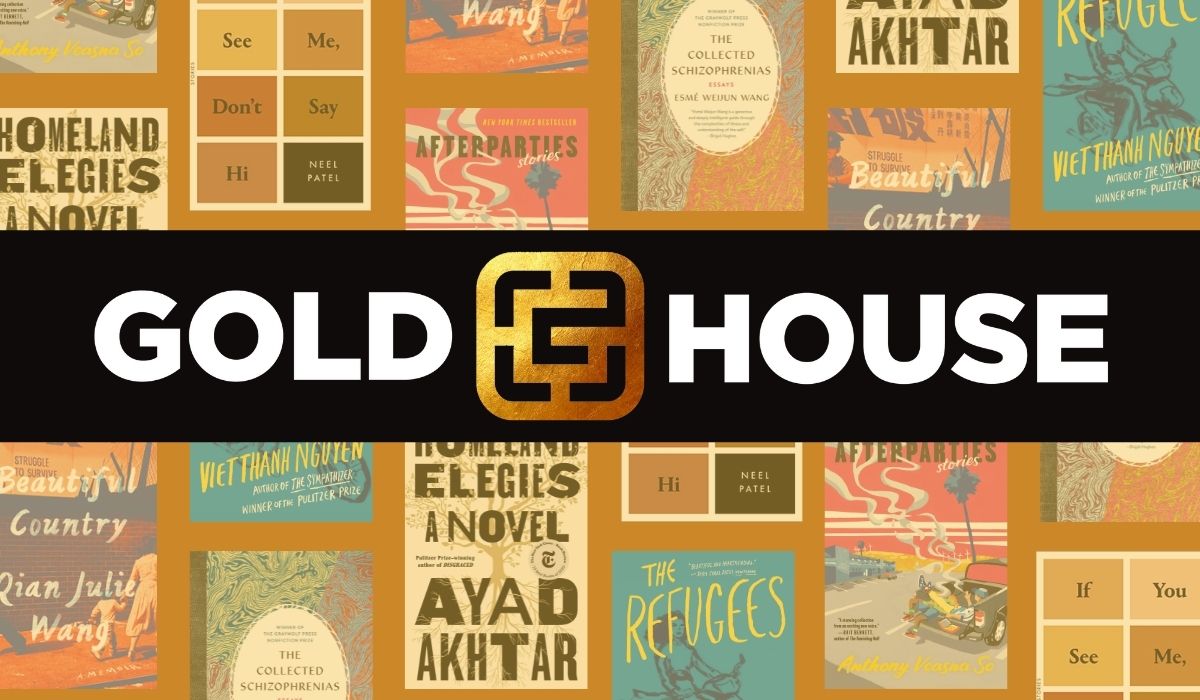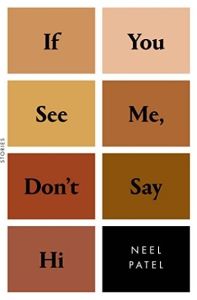Gold House Book Club Explores Dreams, Realities of the AAPI Community

Founded in 2018 by the former global head of creator development at YouTube, Bing Chen, Gold House seeks to unify the Asian American and Pacific Islander community (AAPI) by intentional coalition-building. While there’s always been a push for AAPI solidarity, the dozens of languages’ unique needs make this more complicated than other marginalized diasporas in the U.S. Gold House seeks to create unity, increase representation, and build pathways for future Asian Americans within the AAPI community.
One of the many initiatives Gold House started is its biannual book club. The Book Club Advisory Council picks six books to read under a common theme twice a year. The council consists of 22 AAPI writers, activists, and professors. These include icons that were previously mentioned in the last few months and those who influenced our reading/writing, like Amy Tan, Anthony Ocampo, and Sayantani Dasgupta.
The first theme was “Intro to Identity,” followed by “Resistance and Resilience.” For Winter/Spring 2022, the council chose the theme “Diasporic Dreams and Lived Realities.” Most books were published recently, with the oldest books coming out in 2018 and 2019.
Winter & Spring 2022 Books
January is about to end, but that doesn’t mean you need to miss Qian Julie Wang’s Beautiful Country: A Memoir. As 7-year-old Mei Guo arrives in NYC in 1994, she must find a way to occupy herself as her undocumented family strives to survive and turns to books as a coping mechanism and a way to learn English faster.
Award-winning novels Homeland Elegies by Ayad Akhtar (February) and The Refugees by Viet Thanh Nguyen (March) explore people’s lives split up by war. Akhtar’s book centers an Afghani perspective while Nguyen’s centers one that’s Vietnamese.
April’s If You See Me, Don’t Say Hi by Neel Patel features 11 short stories from (mostly) first-generation Indian Americans. Many stories provide opposite expectations on topics like tradition vs. modernity and rural vs. urban. The title alone had me hooked when I read it in 2019, and it didn’t disappoint.

(Flatiron Books)
May’s The Collected Schizophrenias by Esmé Weijun Wang is a series of essays that discuss her journey in discovery and reflection on how this disease and the stacking health issues affect her life. This is not just a vital read because stories depicting schizophrenia often center on everyone except those dealing with it, but because many in healthcare overlook the mental health needs of women and those in the AAPI community. (See how gender and the Model Minority Myth affect access to healthcare.)

(Image: Ecco Press.)
June’s The Afterparties by Anthony Veasna So offers a vignette of Cambodian-American life, especially within California’s queer and immigrant communities. Because many characters never saw war, but their parents did, they also carry the generational trauma of U.S. interventions.
Books for the whole family
While the book club focuses on discussions with adults young and old, they also platform novels for the little ones. Their children’s literature for spring 2022 includes five stories on familial bonds and self-confidence. For example, Laxmi’s Mooch by Shelly Anand is about a child teased over her mustache, and Always Anjali by Sheetal Sheth follows young Anjali on a quest to get her unique name on a bike plate to match her friends’.
The middle-grade literature section features books familiar to TMS readers like Front Desk by Kelly Yang (which made our 2021 middle school book gift guide) and many new ones. Additional titles include Blackbird Fly by Erin Entrada Kelly, A Thousand Questions by Saadia Faruqi, and Stand Up, Yumi Chung! by Jessica Kim.
While this initiative is by AAPI for AAPI, the stories for kids and adults are both very culturally specific and also (like most fiction) universal.
(via Gold House, image: Gold House, Alyssa Shotwell, and publishers.)
The Mary Sue may earn an affiliate commission on products and services purchased through links.
The Mary Sue may have advertising partnerships with some of the titles and publishers on this list.
Want more stories like this? Become a subscriber and support the site!
—The Mary Sue has a strict comment policy that forbids, but is not limited to, personal insults toward anyone, hate speech, and trolling.—
Have a tip we should know? [email protected]
